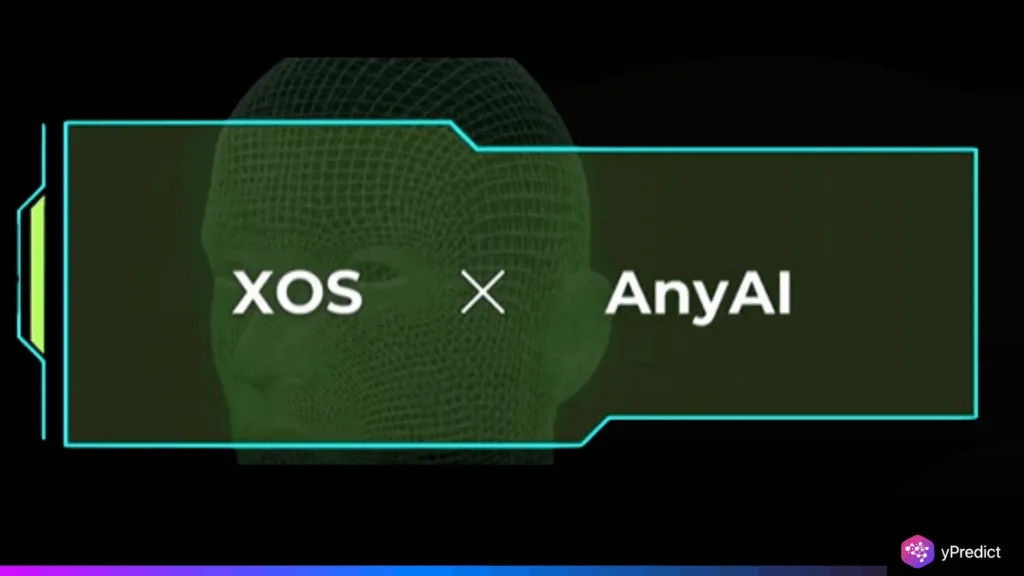
The merger between blockchain specialist XOS and privacy-preserving AI aggregator AnyAI will serve as a critical step to merge two groundbreaking technologies. The blockchain infrastructure of XOS, currently renowned for secure, transparent, and decentralized data processing. Combined with the AnyAIs platform that offers one-login access to the best AI models. About to launch its on-chain labeling marketplace. The nature of this alliance is the improvement of privacy and security and accessibility to the applications of AI.
Blockchain Foundations in the XOS–AnyAI Partnership
Blockchain (as implemented by XOS) is characterized by both immutable and decentralized data storage. This is an important feature of applications that need trust and safety. It has a tamper-proof ledger, which makes it the best to use in high-stakes activities. Like financial transactions, verifying identities, storing sensitive items, and keeping records that may be sensitive. In the case of AI, this infrastructure does allow distributing such large data sets. Thereby being capable of training models without the use of centralized storage. Which is more likely to be broken into.
Blockchain in the XOSAnyAI partnership not only provides storage. It turns into a trust-minimized setting in which it is possible to deploy, validate, and run AI models with transparency. This is particularly useful to organizations that have to work under strong privacy laws. Like GDPR and nevertheless benefit from the predictive ability of AI. Fewer points of failure also increase resilience due to a variety of decentralized datasets.
The blockchain structure by XOS will be the foundation of the on-chain labeling market that AnyAI intends to build. In this case, the datasets are able to be labeled, exchanged, and shared securely on the network. So that AI developers can get access to prime-quality training material without disclosure of raw data.
Privacy-Preserving AI and Emerging Opportunities
The application of AnyAI in this collaboration is concentrated in the area of privacy-protected AI aggregation. A trend that is becoming increasingly needed in a data-sensitive world. The security of its platform enables the user to access a variety of AI models. Under a single secure login, and prevents as much exposure of personal data as possible. This privacy orientation will be further extended through the on-chain labeling marketplace. Offering the possibility of dataset production and curation on the blockchain. Thus, achieving transparency and ownership and securing underlying data.
The merger is also in line with the research methods of training an AI without transmitting raw data through the federated learning techniques. Rather, there is just sharing of updates of the models, with distributed devices or institutions being able to learn from each other without sharing sensitive information. The methodology has great potential in areas such as its application in healthcare, finance, and the identity management sector, where privacy matters are paramount.
Outside of compliance, there is innovation with privacy-preserving AI. The AI models implemented into blockchain networks may be used in DeFi applications that evaluate risk in real time or smart contracts activated on AI prediction. Also, the transparency of blockchain will allow auditing of AI decision-making, which will foster trust in the automated systems. The collaboration between XOS and AnyAI goes beyond meeting existing security needs and opens potential business models tapping into the combination of decentralization, trust, and AI intelligence in a common technological stack.
Future Outlook
The XOS and AnyAI merger is not just a business merger, but is another indication of moving toward decentralized, privacy-friendly AI infrastructure. Should this attempt prove successful, it would change the way highly sensitive data is stored, shared, and utilized within AI systems, especially in controlled industries. Combining the immutable trust layer of blockchain with the analytical framework of AI has both technical and commercial benefits, resulting in the introduction of new decentralized marketplaces, secured AI products, and community-based innovation.






